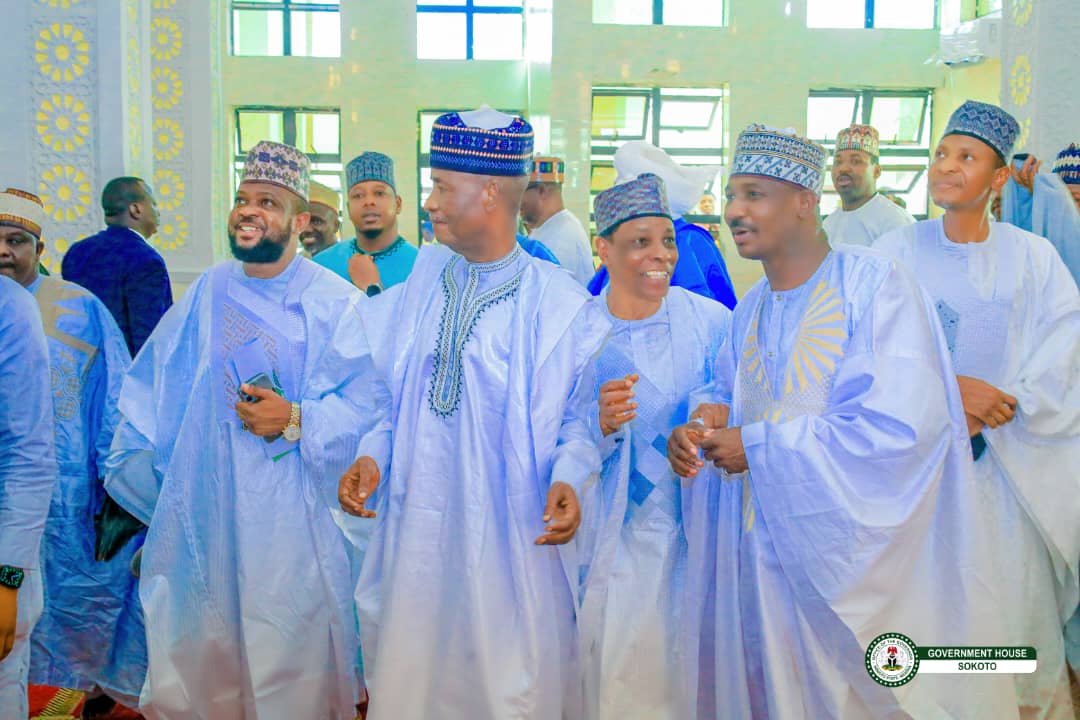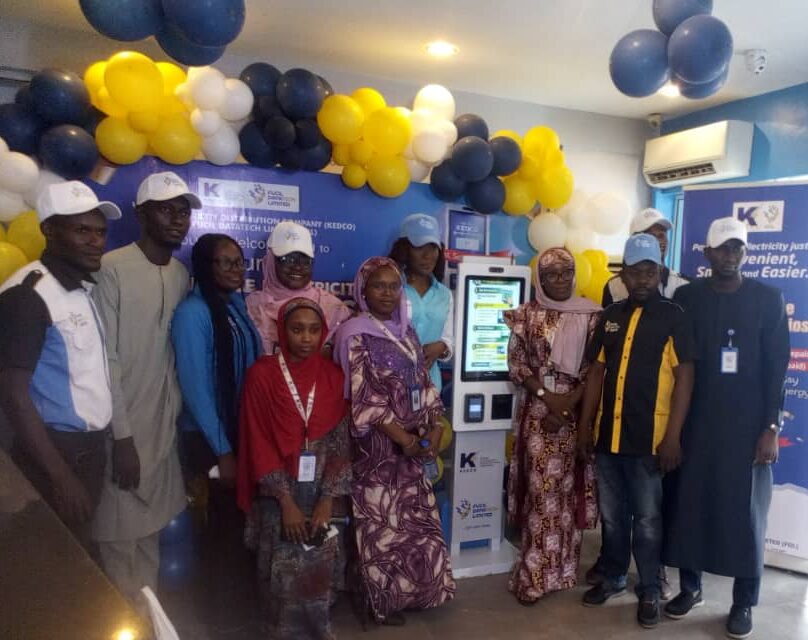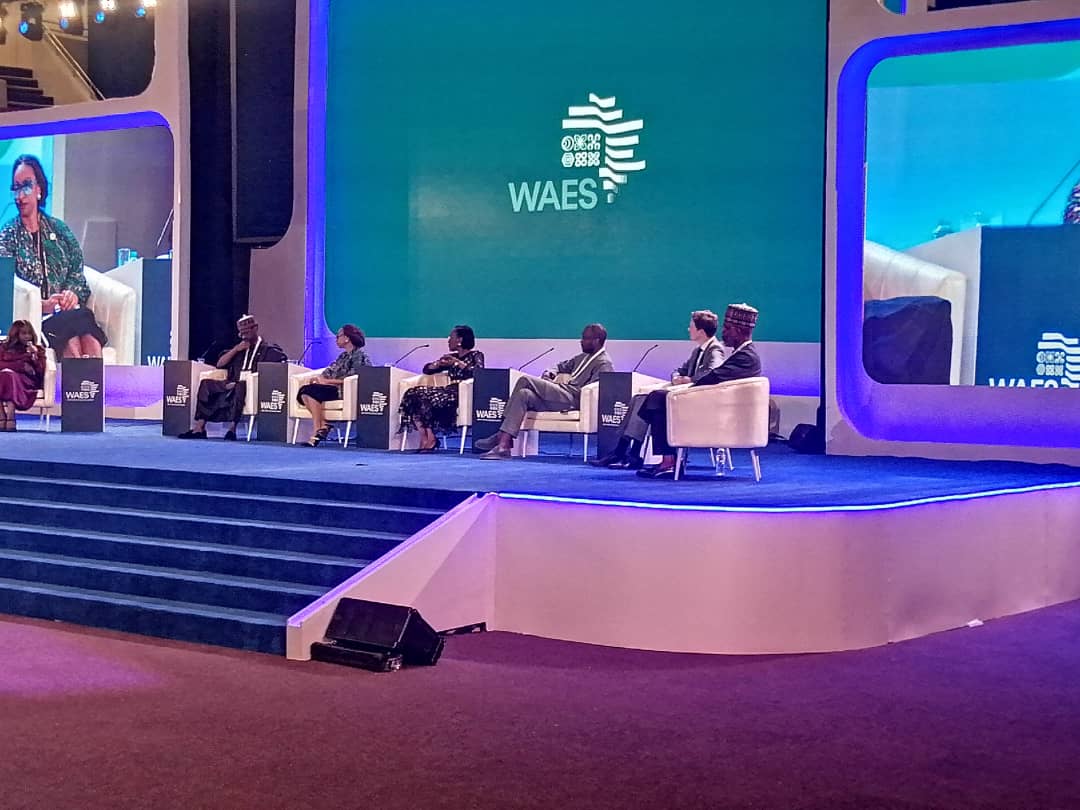By: Goodluck E. Adubazi, Abuja.
With Africa’s population estimated at over 4 billion and a GDP exceeding \$3 trillion, many of the continent’s potentials remain largely untapped. This underutilization is attributed to limited intra-African trade, which experts say is hindered by numerous barriers. Speaking at the opening of the two-day West Africa Economic Summit held at the Bola Ahmed Tinubu International Conference Centre in Abuja, the Managing Director and CEO of Sterling Bank, Abubakar Suleiman, stated, “Africa cannot finance its growth with international capital,” while also emphasizing that the lack of reliable data continues to challenge efforts to fund small-scale traders on the continent.
In an interview with Standard Times Nigeria, Suleiman underscored the importance of national and regional coordination in eliminating barriers to maximize the African Continental Free Trade Area (AfCFTA) for stronger intra-regional trade in West Africa. Meanwhile, the Honourable Minister of State for Foreign Affairs, Hon. Bianca Ojukwu, told journalists at the summit—scheduled for June 21–22—that the Federal Government aims to use this year’s event to strengthen regional trade. She noted that despite existing protocols ensuring free movement of goods and people, practical restrictions still exist across the region.
According to her, “This is why the President has brought together heads of state and government to be part of this legacy project—one of the promises he made upon assuming leadership of ECOWAS. Today, that promise is being fulfilled.” She further highlighted that 750 million African youths have the capacity to drive the continent’s workforce. “We must optimize businesses, digitize operations, and equip young people with the necessary skills to contribute meaningfully to economic productivity,” she said, stressing that Africa can no longer depend on foreign aid. Instead, she called for “African solutions to African problems.”
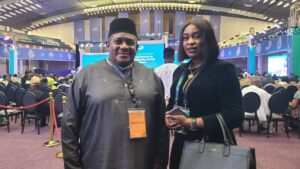
The Minister of Industry and Trade of the Republic of Benin, Hon. Shadiya Alimatou Assouman, speaking in French during a panel session, emphasized that enhanced intra-regional trade will help Africa claim its rightful place on the global stage. Others who spoke to Standard Times Nigeria applauded the timeliness of the summit. Tony Luka Elumelu, Director of Private Sector at ECOWAS, said, “This event is timely, especially now that we’re beginning to understand the vital role of the private sector in economic growth and integration.” He added that the MSME sector is the engine room of regional economic development.
“When we talk about SMEs, we must recognize that they form the backbone of Africa’s regional integration,” Elumelu stated. He further stressed that the private sector plays a dual role—both as the engine and lubricant of the economy—and must be properly recognized and supported. On ECOWAS integration, Elumelu advised the regional body to facilitate investment flows by developing a unified legal instrument, such as an investment code, to ease cross-border investments.
He emphasized the need to strengthen institutions like the West Africa Investment Promotion Agency, noting that collaboration within and outside the region could attract needed investors and create employment opportunities. Speaking on AfCFTA trade barriers, Elumelu noted that beyond physical obstacles, administrative and infrastructural challenges persist, particularly in registering businesses and clearing borders. “We must be proactive in dismantling these hurdles,” he said.
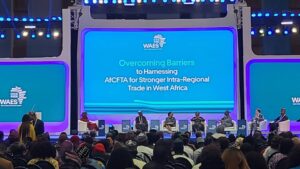
Elumelu advised ECOWAS to modernize its processes, stating, “We don’t need a proliferation of checkpoints. What we need is automation and the use of technology to ensure compliance with regional agreements.” He cited the example of gold produced in Nigeria facing regulatory bottlenecks when transported to neighboring countries. “But we can remove these barriers. There is the will to do so, and that’s why President Bola Ahmed Tinubu organized this investment forum,” he added.
Payment systems have also been identified as a major obstacle to cross-border trade in Africa. Panelists urged African leaders to collaborate with governments and fintech companies to develop intra-African payment solutions. One such solution is the Pan-African Payment and Settlement System (PAPSS), which seeks to simplify cross-border transactions.
Panelists further encouraged multinational companies such as Visa to support cross-border transactions for both individuals and businesses. However, they emphasized that policy harmonization and regulatory coordination are crucial for these systems to succeed. Fintech companies, especially in West Africa, are leading the development of innovative solutions to enable seamless intra-African payments.

During another session, panelists noted that Nigeria is emerging as a global leader in fintech innovation. To capitalize on this potential, experts called for government policies that support digital transformation and help connect African talent with global opportunities. One speaker cited a Nigerian software firm serving international clients despite limited resources, highlighting the creative talent on the continent and the transformative power of technology.
The discussions also highlighted the importance of public-private partnerships in ensuring the success of AfCFTA. Experts urged African leaders to launch multiple initiatives, including the Forum’s Action Initiative, which brings together heads of state and CEOs to address trade challenges. Private sector commitments are also crucial to smooth value chains and resolve trade bottlenecks.
Recommendations were also made for mechanisms to support trade facilitation and digital commerce, such as the Global Alliance for Trade Facilitation, which currently operates 21 projects across Africa. The summit’s panels addressed barriers to AfCFTA implementation, export scaling through industrialization, port reform, regional access, identity verification, visa policies, and digital payments.

Hosted by the Federal Ministry of Foreign Affairs, the West Africa Economic Summit welcomed 15 heads of state and hundreds of delegates from across the region. The gathering focused on finding African-led solutions to the continent’s unique challenges through collaborative and interactive sessions.



